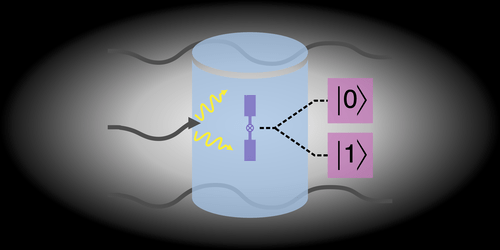Quantum computers are expected to revolutionize the way researchers solve difficult computing problems. These computers are being designed to tackle major challenges in fundamental research areas, such as quantum chemistry. In its current stage of development, quantum computing is still very sensitive to noise and disruptive factors in the environment. This makes quantum computing “noisy” as quantum bits—or qubits—lose information by getting out of sync, a process called decoherence.
To overcome the limitations of current quantum computers, researchers at Pacific Northwest National Laboratory (PNNL) are developing simulations that provide a glimpse into how quantum computers work.
In collaboration with Oak Ridge National Laboratory and Microsoft, the team uses high performance computing to develop simulators that mimic real quantum devices for executing complex quantum circuits. Recently, they combined two different types of simulations to create the Northwest Quantum Simulator (NWQ-Sim) to test quantum algorithms. (Phys.org)


